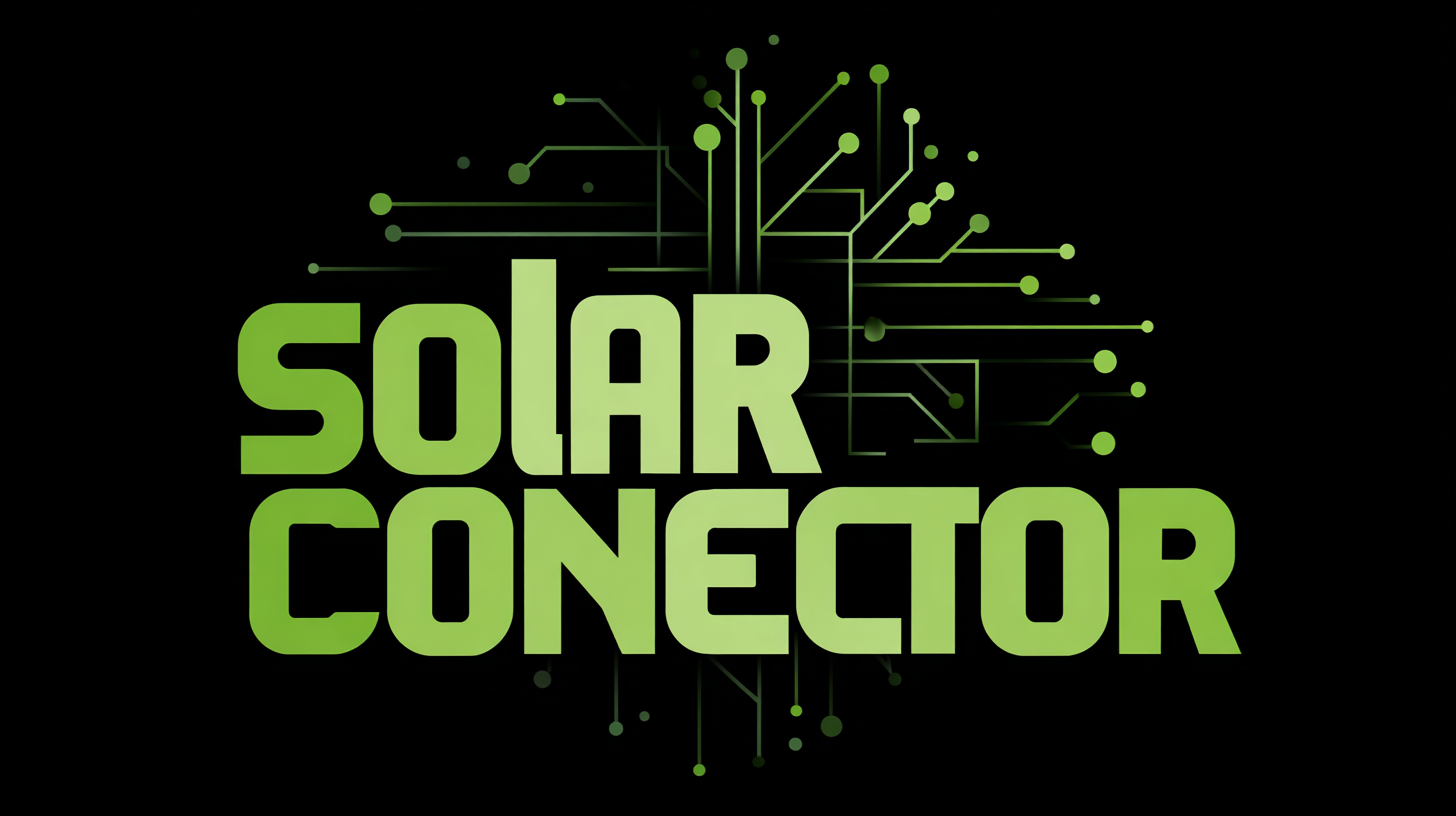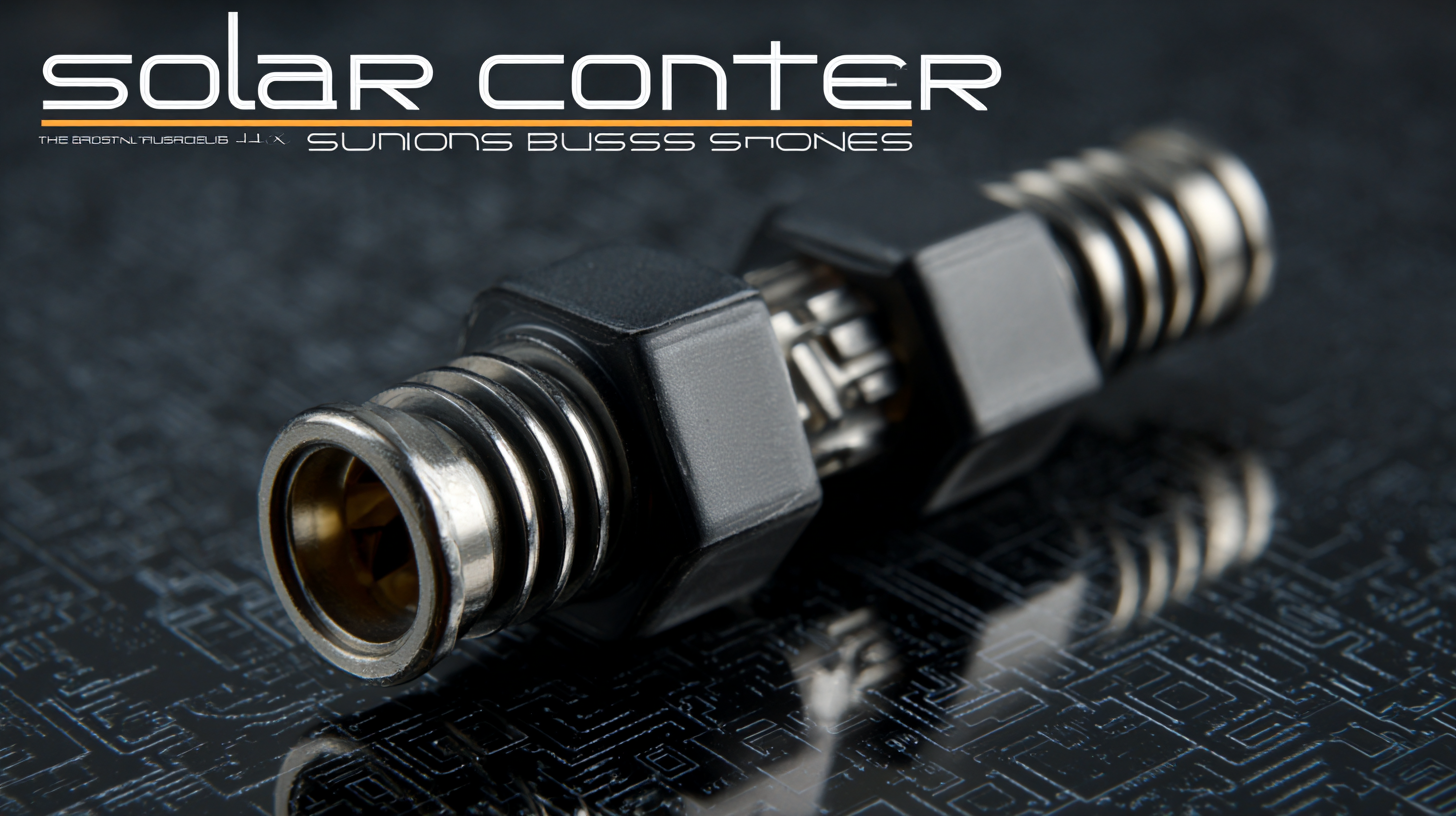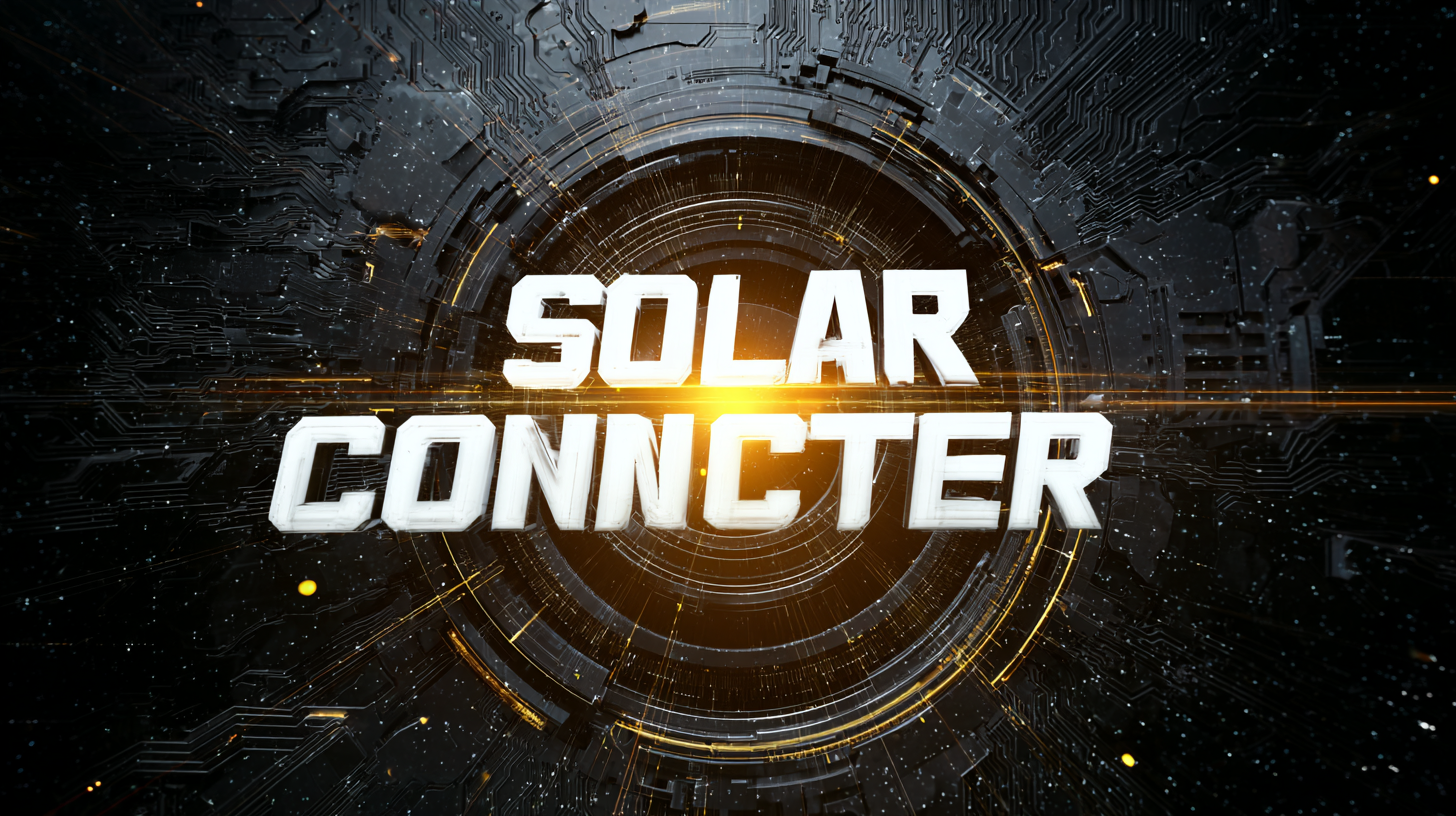
Top Strategies for Choosing the Best Solar Connector for Your Business Needs
In today's rapidly evolving energy landscape, selecting the right solar connector is crucial for optimizing your solar energy systems. With an array of options available, businesses must navigate through various types of connectors to find the best fit for their specific needs. This blog will delve into the industry applications of solar connectors, showcasing real-world case studies that illustrate their importance across different sectors. Additionally, we will address common problems associated with specific connector types, equipping you with the knowledge to make informed decisions. By understanding the strengths and limitations of each option, you can ensure that your solar installations are efficient, reliable, and tailored to meet the unique demands of your business. Join us as we explore the top strategies for selecting the ideal solar connector for your enterprise.

Understanding the Importance of Solar Connectors in Photovoltaic Systems
 In photovoltaic systems, solar connectors play a crucial role in ensuring the efficiency and reliability of energy production. A study conducted by the National Renewable Energy Laboratory indicates that improper connections can lead to energy loss of up to 10%. This emphasizes the significance of selecting high-quality connectors that can withstand environmental factors and prevent electrical issues. The right connectors not only enhance performance but also improve the longevity of solar installations.
In photovoltaic systems, solar connectors play a crucial role in ensuring the efficiency and reliability of energy production. A study conducted by the National Renewable Energy Laboratory indicates that improper connections can lead to energy loss of up to 10%. This emphasizes the significance of selecting high-quality connectors that can withstand environmental factors and prevent electrical issues. The right connectors not only enhance performance but also improve the longevity of solar installations.
Moreover, the global solar connector market is projected to grow significantly, anticipated to reach $1.4 billion by 2025, as reported by Research and Markets. This growth can be attributed to the increasing adoption of solar energy systems worldwide, highlighting the demand for robust and efficient connectors. Choosing the best solar connector not only ensures compliance with safety standards but also optimizes overall system performance, leading to better return on investment. Thus, understanding the impact of solar connectors on photovoltaic systems is essential for businesses aiming to maximize their solar energy potential.
Key Factors to Consider When Selecting Solar Connectors for Your Business
Selecting the right solar connectors for your business is a crucial aspect of optimizing solar power systems. As the industry evolves, several key factors come into play. Firstly, compatibility with the existing solar panels and inverters cannot be overstated. Businesses should look for connectors that seamlessly integrate with their chosen equipment to ensure efficiency and durability. This not only enhances performance but also reduces potential issues during installation and maintenance.

Another critical factor is the environmental resilience of the connectors. Given the varying climates and conditions across regions, particularly in places like South Africa, choosing connectors that can withstand extreme temperatures, moisture, and UV exposure is essential. This will help in mitigating risks related to system failures and will contribute to the longevity of the solar network. Additionally, considering advancements in solar technologies, it's wise to stay updated on trends in connector design, including rapid shutdown capabilities and enhanced safety features. Such considerations will position a business to fully leverage the benefits of solar energy while ensuring a sustainable and reliable power solution.
Comparing Types of Solar Connectors: MC4 vs. XT60 vs. Anderson Connectors
When it comes to selecting the right solar connectors for your business, understanding the differences among the most common types is crucial. MC4 connectors are widely recognized in the solar industry for their reliability and efficiency. According to the Solar Energy Industries Association (SEIA), approximately 85% of solar installations in the U.S. utilize MC4 connectors, which are rated for up to 30 amps and can withstand harsh environmental conditions. This makes them an ideal choice for long-term outdoor applications, as their weatherproof design adds a layer of protection against moisture and dust.
On the other hand, XT60 connectors, with their robust locking mechanism and high current capability of 60 amps, are becoming more popular in certain applications, particularly in off-grid systems and electric vehicles. A report from Research and Markets highlights a growing trend in the adoption of XT60 connectors, attributing their rise to the need for higher efficiency and reliability in expanding solar technologies.
Finally, Anderson connectors, typically favored for their versatility and high-power capabilities, provide an excellent solution for larger scale systems. Their ease of use and ability to handle significant power loads—up to 300 amps—make them suitable for commercial solar installations, ensuring a secure connection for demanding energy needs.
Industry Standards and Certifications for Reliable Solar Connectors
When selecting solar connectors for your business, understanding industry standards and certifications is crucial for ensuring reliability and safety. Solar connectors must comply with various international standards such as IEC 62852 and UL 1977, which define the performance and safety requirements for photovoltaic connectors. These standards ensure that connectors can withstand harsh environmental conditions and perform optimally over time, making them suitable for diverse installations.
In addition to performance standards, certifications from recognized organizations such as TUV and CSA play a pivotal role in the decision-making process. These certifications not only verify the quality and durability of the connectors but also provide peace of mind that the components meet or exceed regulatory requirements. Choosing connectors with appropriate certifications helps mitigate risks associated with electrical failures and enhances the overall efficiency of solar energy systems. As businesses increasingly rely on sustainable energy solutions, selecting solar connectors that adhere to these industry standards will prove essential for long-term operational success.
Evaluating Durability and Performance Metrics in Solar Connector Selection
When selecting solar connectors for your business needs, evaluating durability and performance metrics becomes critical to ensure long-term success and reliability. According to a report from the National Renewable Energy Laboratory (NREL), durability is paramount in solar installations, as connectors must withstand extreme environmental conditions, including temperature fluctuations between -40°C to 90°C. High-quality connectors, such as those adhering to the IEC 62852 standard, have been shown to feature enhanced UV resistance, corrosion resistance, and mechanical strength, leading to an impressive lifespan that can exceed 25 years.
Performance metrics also play a substantial role in the decision-making process. A study by the International Electrotechnical Commission (IEC) highlights that connectors can significantly impact overall system efficiency, with subpar connectors leading to power losses between 3% to 10%. Selecting connectors with low contact resistance and high amperage ratings can mitigate these losses effectively. For instance, products with a proven track record of low thermal dissipation and high conductivity ratings, such as MC4 connectors, have demonstrated their ability to maintain optimal system performance over extensive operational periods. These metrics are essential to consider when striving for reliability and efficiency in your solar energy solutions.
